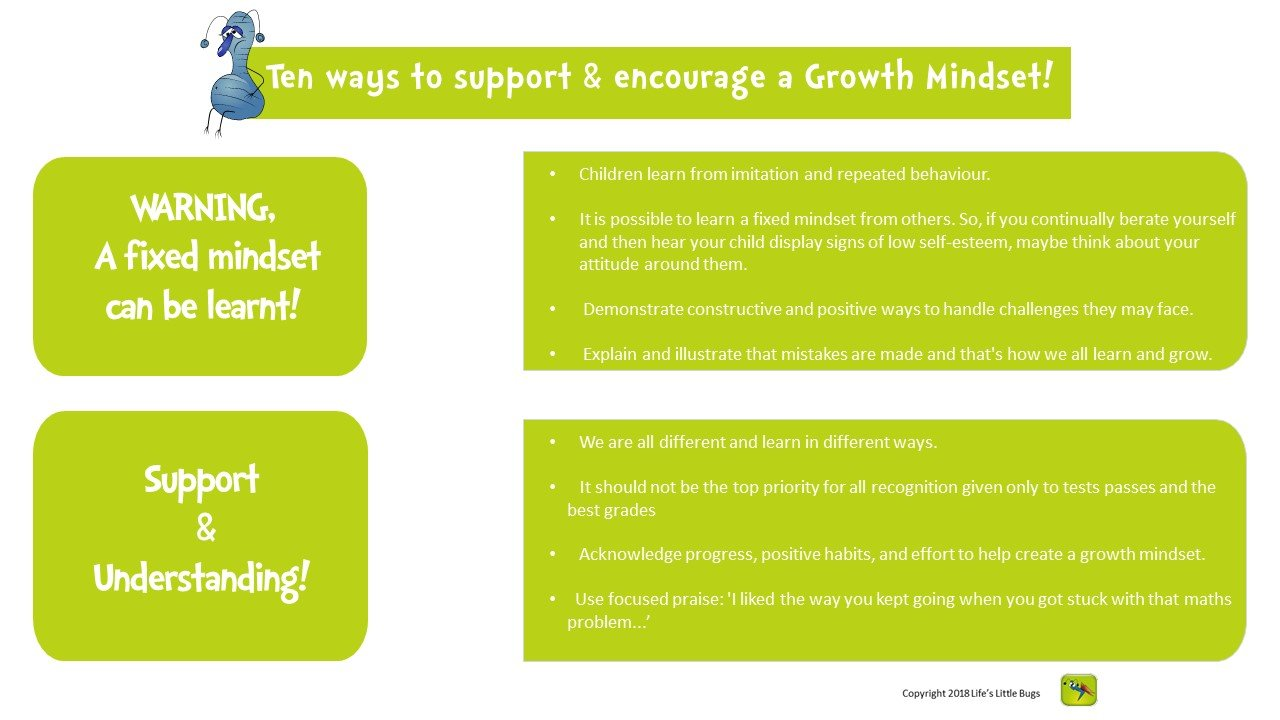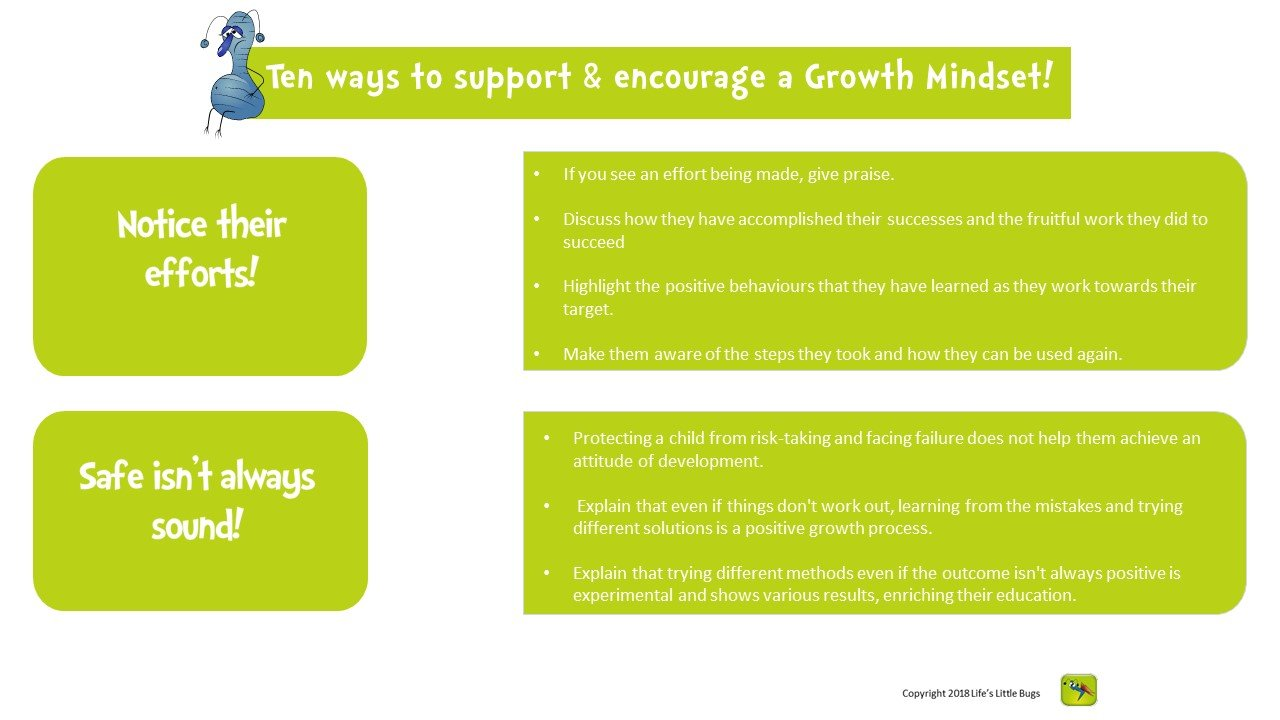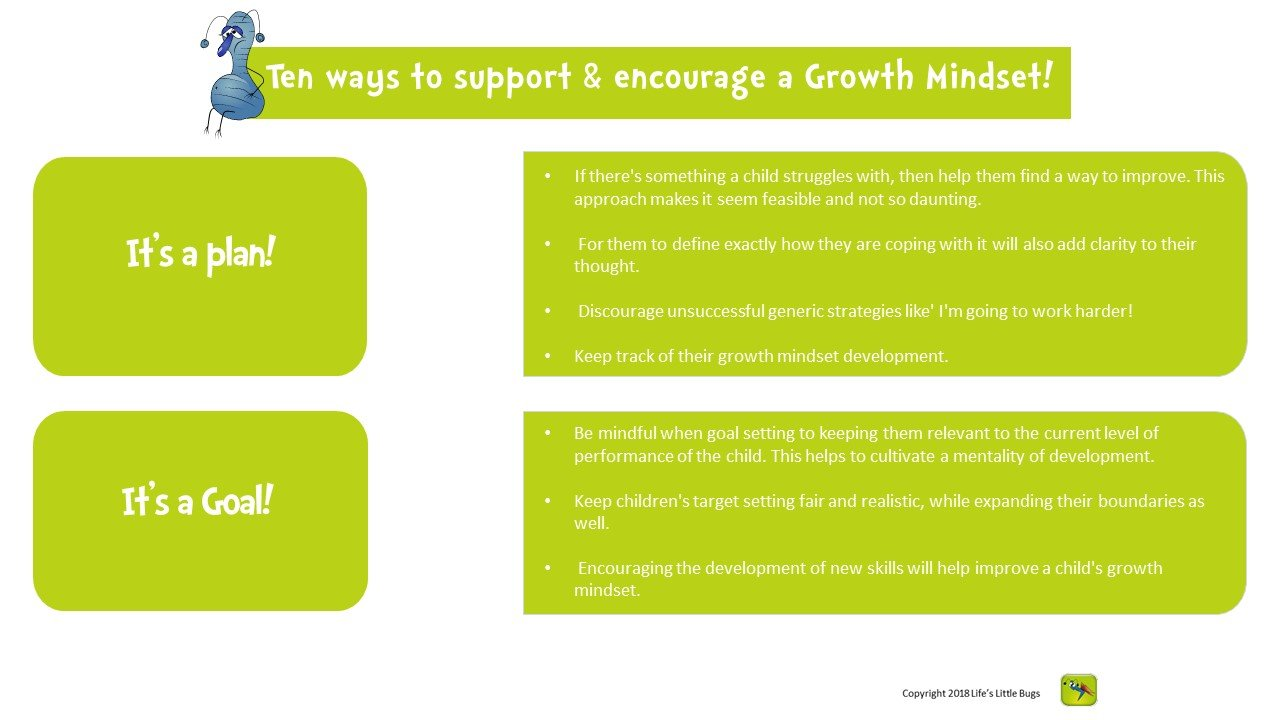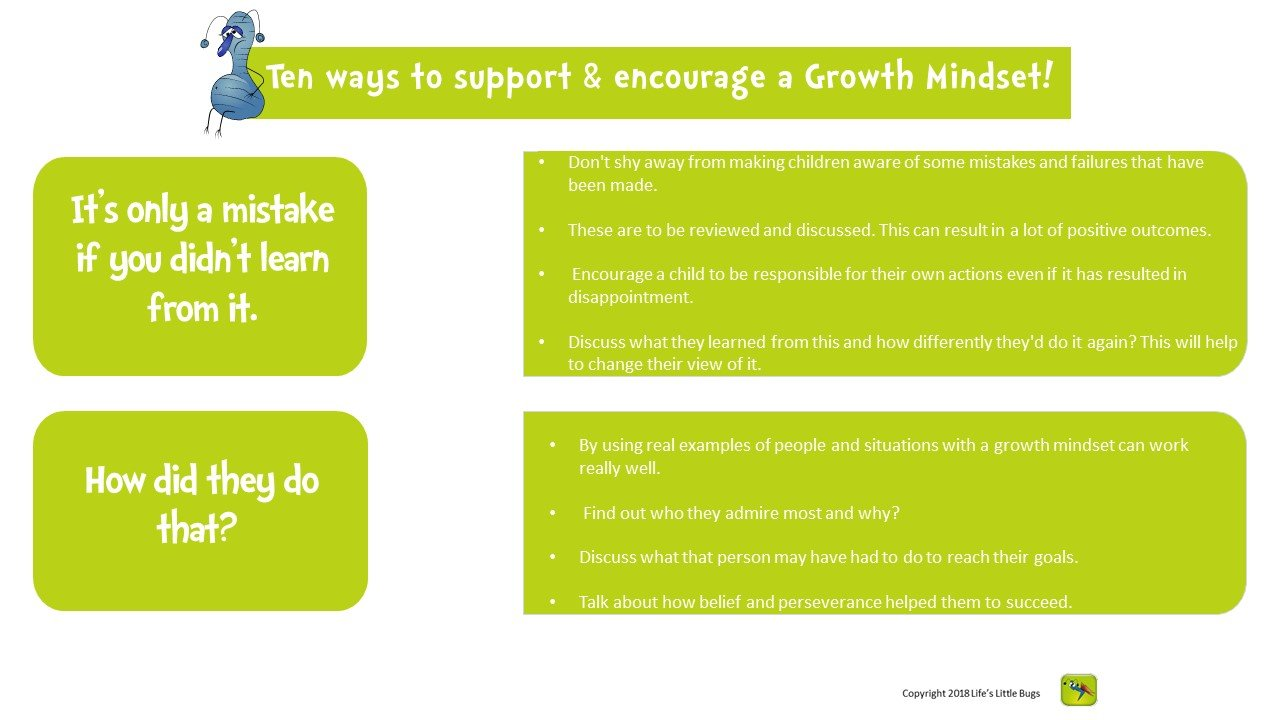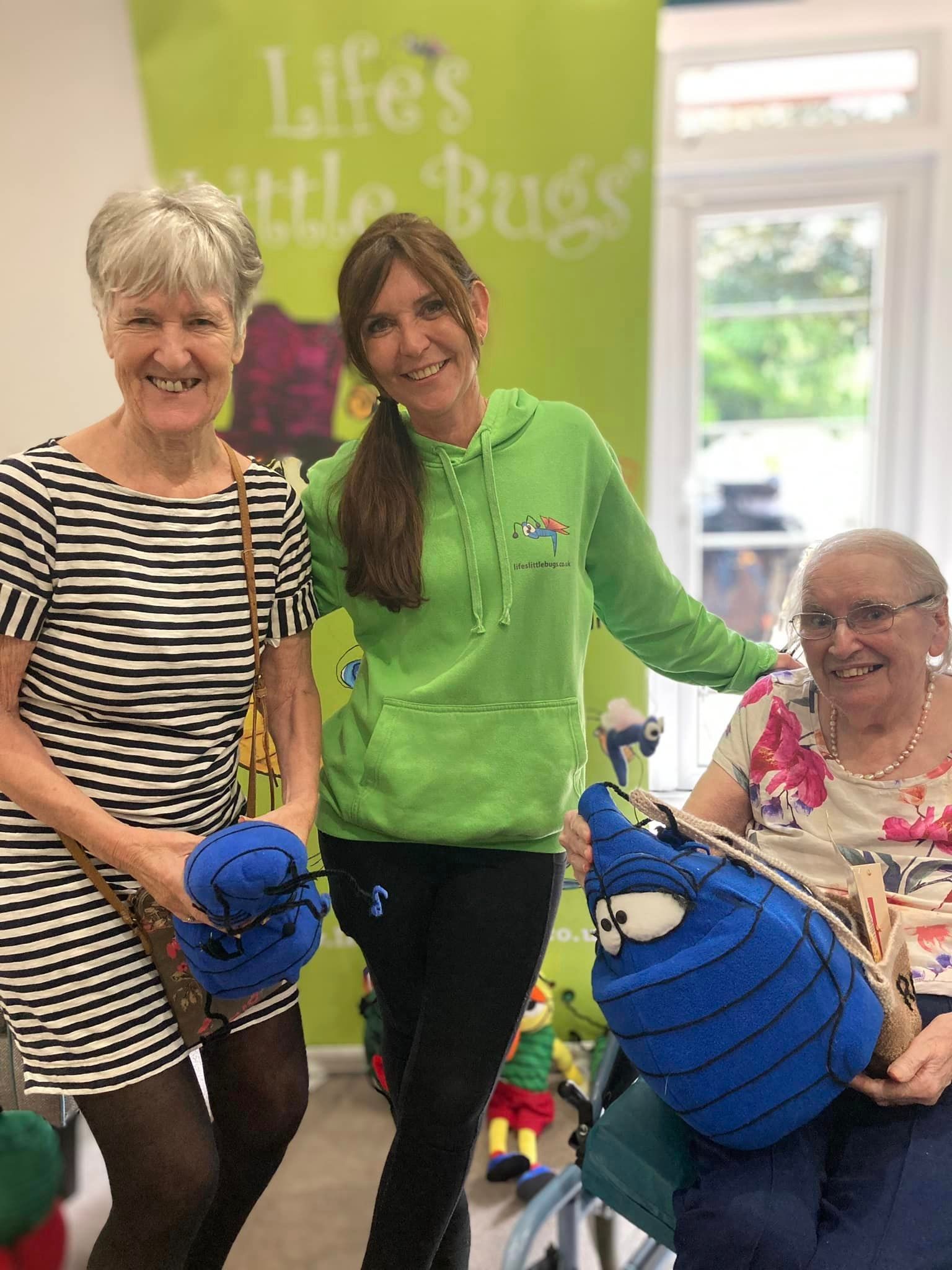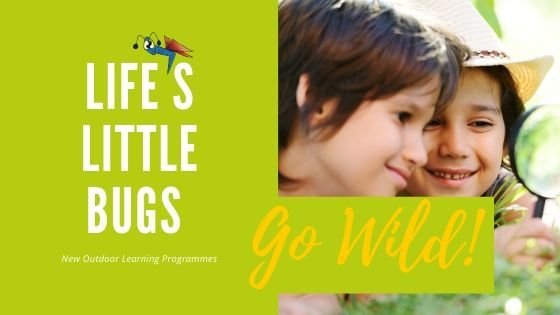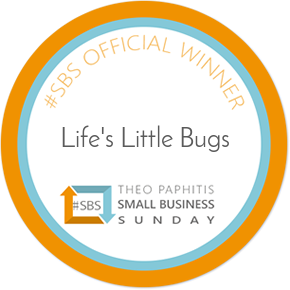Ten ways to encourage & support a growth mindset
Tina Stubbs • November 19, 2019
Ways to help children build a growth mindset.

Start by helping a child to build self-esteem and confidence in what they do.
Making them feel inferior has a very negative effect and will discourage motivation.
I'm a big believer in having fun when you learn. They are more likely to remember it and making it fun encourages more participation in tasks.
Actions can speak louder than words with children as they are great imitators, so don't be surprised if they mirror some of your negative behaviours. Be aware of your attitude around them as it would be unfair to tell a child off for mirroring your behaviour. Try and lead by example where you can.
Everyone has learning differences. Not all children excel at academic tasks or learn new information as quickly as others. Give recognition for effort and perseverance, as these two traits will encourage achievement.
Noticing a child's effort is always encouraging.
Discuss the trials and solutions a child experiences when working towards their goal. It will help to broaden their awareness of stages they had to work through to accomplish it.
Try and change a child's perception on failures and mistakes, and teach them to embrace them. It will help them to accept disappointment, de- stress them and encourage perseverance.
Strike up a discussion with a child on how they plan to achieve a goal or challenge. If they come out with generic strategies such as 'I'm going to work harder!' ask them, how they plan to do this?
Avoid overloading a child with tasks. Let them enjoy the experience.
Remember, every child will work at a different pace, so be mindful of what theirs is so you can help to broaden their boundaries in a supportive way without unnecessary pressure.
Avoid covering up any mistakes a child has made and turn it into a talking point. The discussion will help them understand where it went wrong or how they can do it differently until they eventually reach the result they are after.
Using examples of people they admire to explain the steps they may have had to go through to reach their own goals is very powerful.
Children can relate to these examples and begin to understand that very few things are immediate. They need effort, belief, visualisation and perseverance to play an essential role when building a growth mindset.
*********
If you found this useful and would be interested in booking us for a more in-depth teacher training workshop on 'How to encourage and support a growth mindset', please get in touch through our booking form
Don't forget we also deliver Hum Bug's growth mindset workshop to children.
A free PDF version to keep is available...
Free PDF version
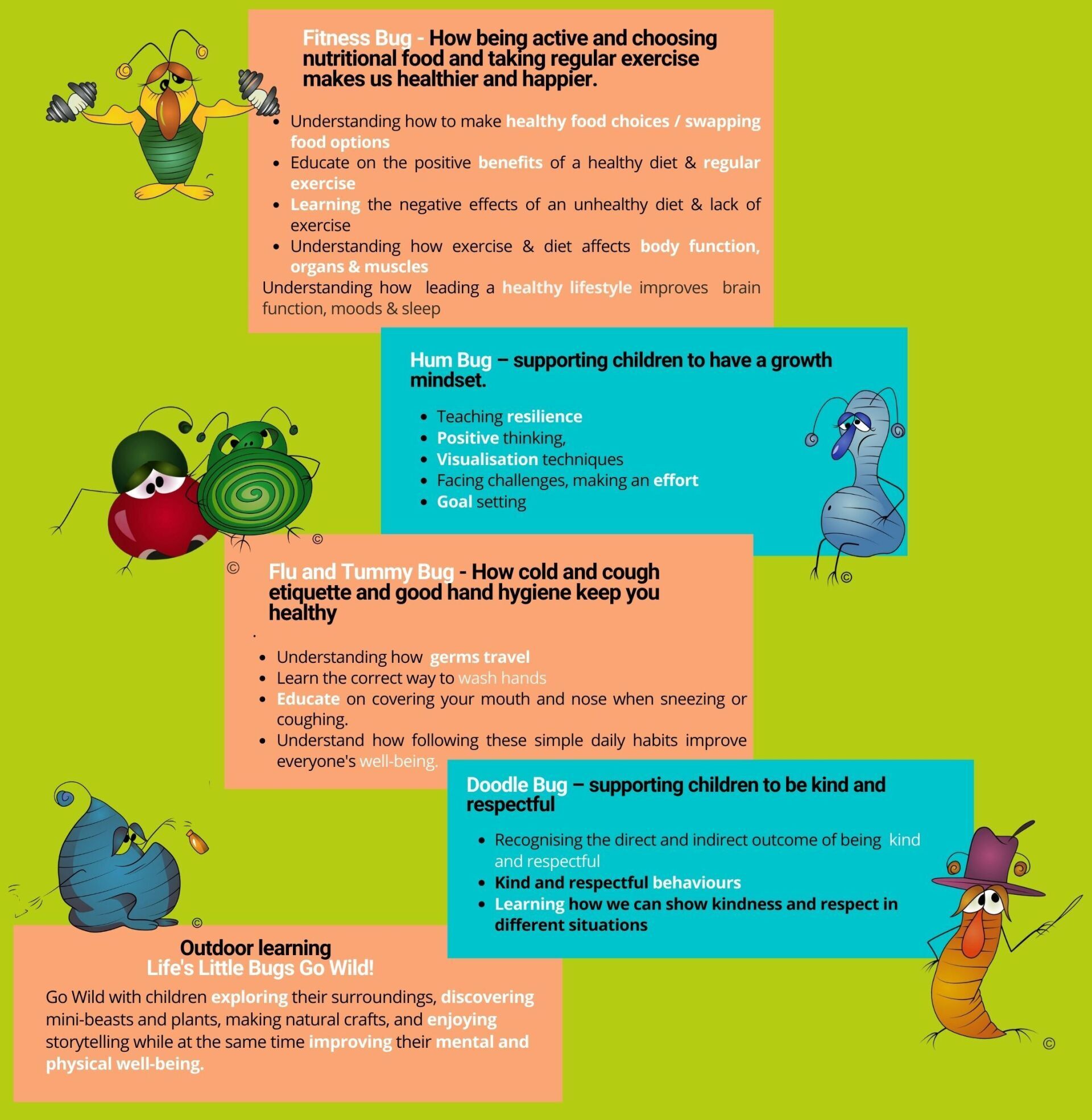
We are excited to announce Life's Little Bugs, five new online interactive workshops for 2021.
We successfully piloted our online workshops with many Berkshire schools over three months with Get Berkshire Active and Berkshire School Games' support and received positive feedback.
For teachers, nannies, childminders and homeschoolers to teach essential healthy habits. Children 5-8yrs. A good Covid recovery plan resource.
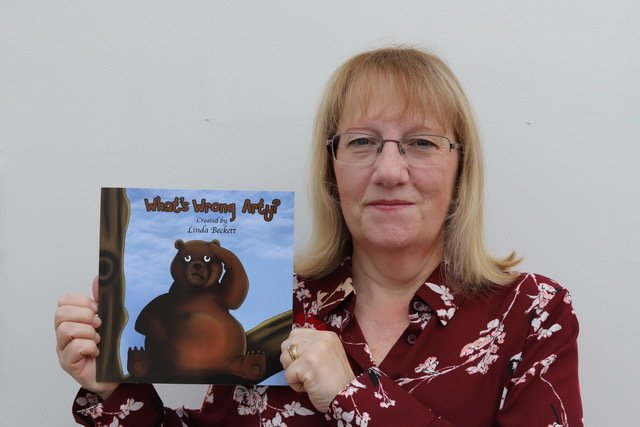
Having studied with the Open University for six years, Linda attained an Honours degree in Psychology. This enabled her to become a Graduate Member of the British Psychological Society. She is also a member of the Society of Authors and the Society of Children's Book Writers and Illustrators. Linda has a keen interest in Mental Health issues, particularly where these issues are affecting children of primary school age, and this is why she wrote her book. Inspired by tales of woodland animals told to her by her father as a child, Arty the Bear was created.
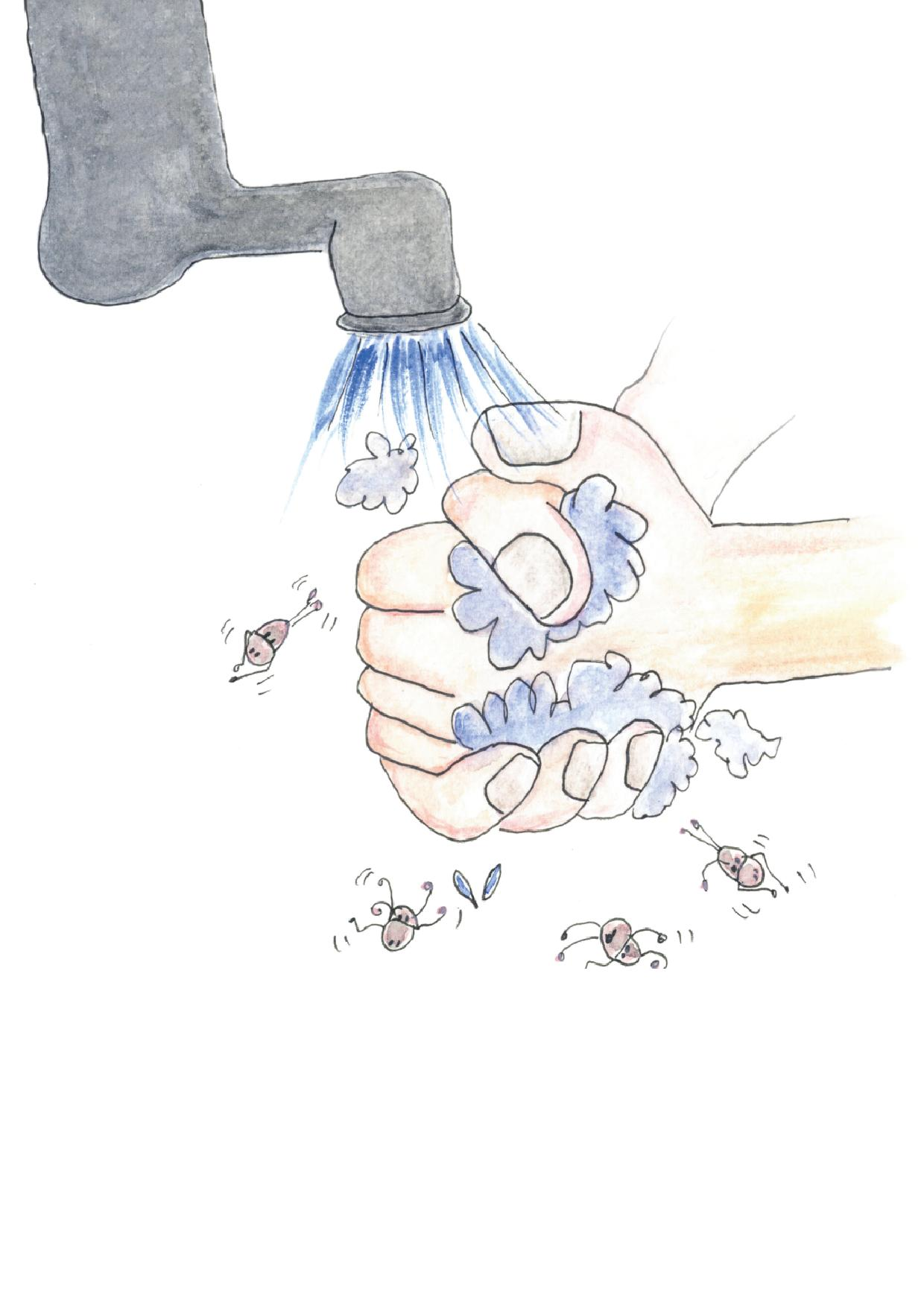
Washing hands has become a new mantra. Life's Little Bugs has always encouraged this healthy habit through our books and workshops. Unfortunately, the current Covid-19 crisis has highlighted the importance of this daily practice, even more so.
Understanding we have to be mindful when educating children, so as not to trigger OCD tendencies, I have written this simple blog to outline when and how to wash hands.

One of the most amazing things to give is the gift of reading and the love for books. If like me, you are an avid reader, then you are aware of the places it can take you and the escape it can offer from your normal every day. But it can also be a very powerful tool to open up discussions with children and a way to communicate when other methods have failed. Relating through examples in a book or using the characters to talk through can be a great way to get the point across or explain a delicate subject. The results can be very potent!

One of the most helpful habits we can teach our children is to value and respect money and learn how to save and invest. In this digital world of touch cards and cash on tap, it is easy to understand why children expect instant gratification when purchasing and not getting to grips with patience and saving. No wonder debt is such a massive problem to so many. Again teaching the basics through education can only benefit for their financial future. Metro Bank offers a great workshop to do just this, and it's free! A no brainer for schools!
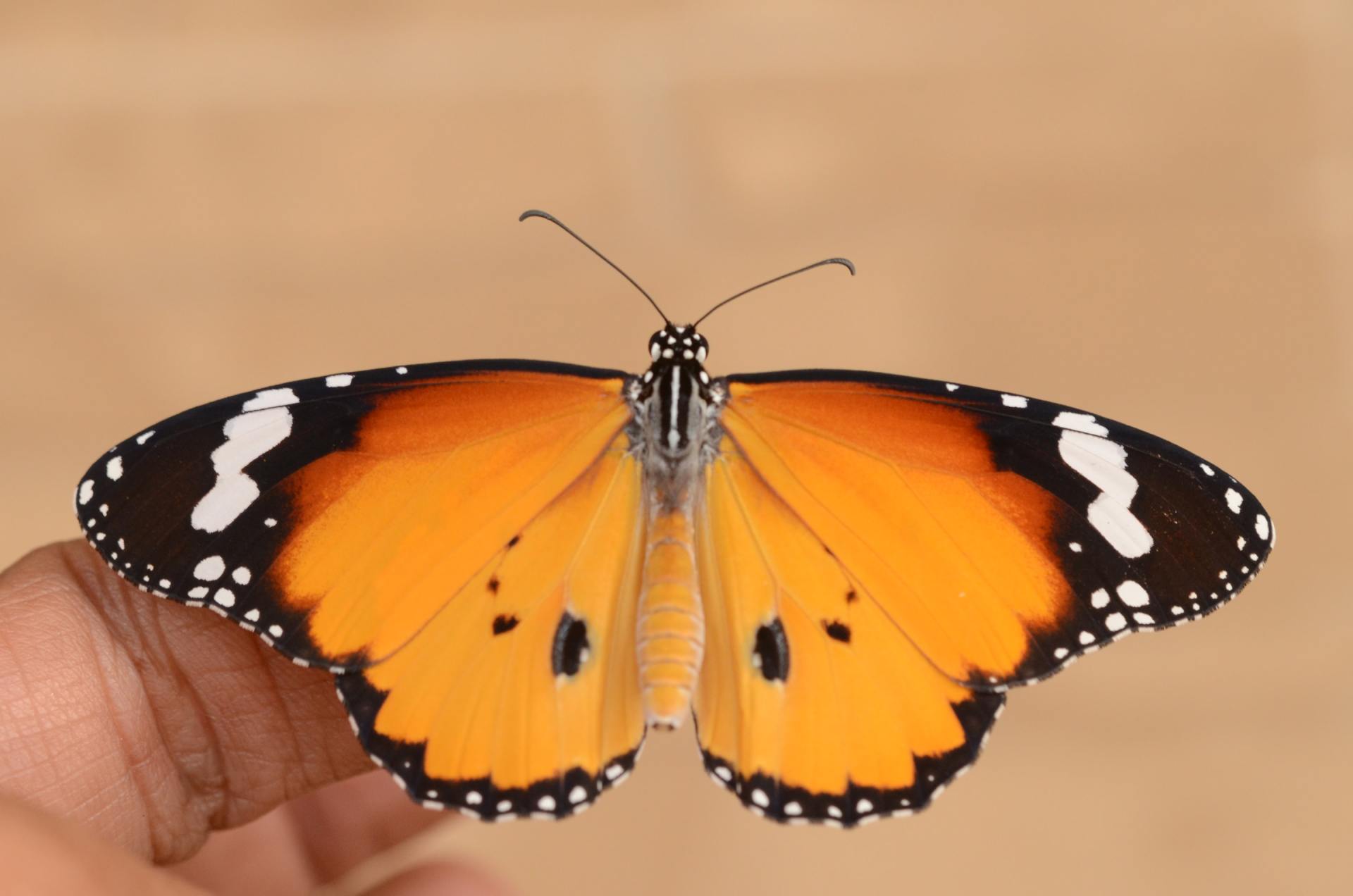
Parenting experts Sue Atkins & Jo Fitzgerald have joined forces to bring help and support for parents and children in this huge milestone, the transition from primary to secondary education. It is a time often fraught with nerves and anxiety. The significant change, the growing up, meeting new people, fitting in and the fear of losing our babies to the start of adulthood come with all sorts of questions and dilemmas. These two ladies will calmly guide you through this change and give you the tools and knowledge to make it a happy and memorable experience for all involved!

